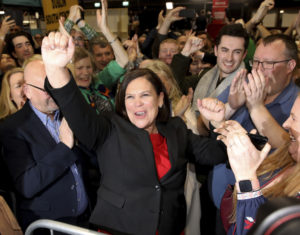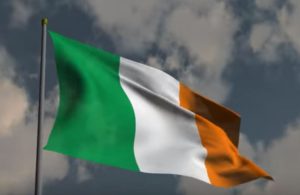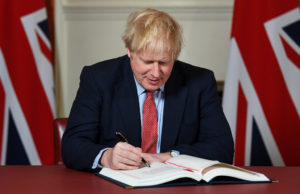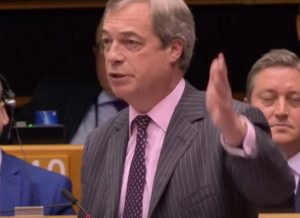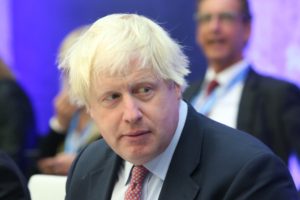Theresa May Will Have Her Way: British Parliament Votes to Allow June 8 Election (Update)
On Tuesday, the British prime minister suddenly called for a snap general election. On Wednesday, Parliament approved the early election.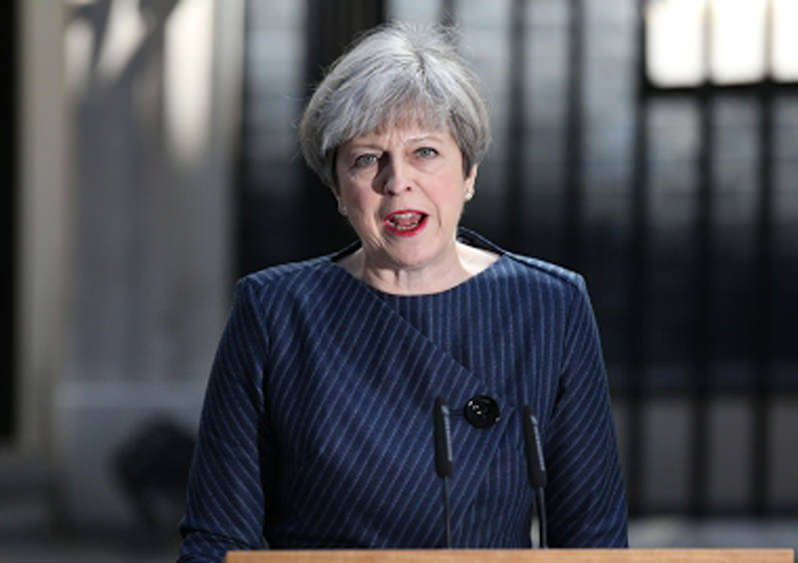
Update Wednesday, 7:08 a.m. PDT: Theresa May will have her way, it seems, after the U.K. parliamentarians voted Wednesday to approve her call for a snap election on June 8. The final count was 522 in favor and 13 against, with several members of Parliament choosing to abstain. A two-thirds majority is required to call an election under the Fixed-Term Parliaments Act — a requirement the House of Commons surpassed by a significant number of votes. Watch the debate in Westminster, London, below:
Meanwhile, here’s a bit more information about why May may have chosen to call an election now, according to The Intercept’s Robert Mackey:
Her decision to subject Britons to a third national election campaign in just over two years — after the 2015 general election and the referendum on exiting the European Union ten months ago — was met with something less than enthusiasm by many voters.
In her address to the nation, May claimed that a fresh election was necessary to keep opposition parties from obstructing her Conservative government during negotiations over Britain’s withdrawal from the European Union.
That argument rang hollow, however, given that the opposition Labour Party had just voted for the government’s bill to begin the process of leaving the E.U. and is not campaigning to overturn the results of last year’s referendum.
To most political observers, it was clear that May’s decision was driven by something else: a desire to capitalize on the unprecedented weakness of the Labour Party, which is divided over Brexit, and its own leader, Jeremy Corbyn, and has trailed the Conservatives by up to 21 points in recent polls.
As the writer Robert Harris and the broadcaster James O’Brien suggested, it might also be in May’s own self-interest, and that of her party, to ask the nation for a five-year term now, before the costs of Brexit become apparent. … Paul Mason, a journalist and filmmaker, suggested that Labour should accept that under Britain’s current electoral system, it can no longer win power alone and should form “a progressive alliance” with other center-left parties, including the Greens, Scottish and Welsh nationalists and, perhaps, Liberal Democrats.
The British prime minister shocked one and all with a surprise announcement Tuesday. Calling for a general election on June 8, the Tory leader declared she’d been shoved between a rock and a hard Brexit by opposition parties and the House of Lords as she attempts to negotiate the United Kingdom’s exit from the European Union. According to the Australian Broadcasting Corp., “Under Britain’s Fixed-Term Parliaments Act, elections are held every five years, but the prime minister can call a snap election if two-thirds of lawmakers vote for it.”
The Independent outlines what the election will mean for the EU exit negotiations:
[The early election is] unlikely [to stop Brexit]. Labour and the Conservatives, the two largest parties, have both said they would enact the EU referendum result.
The Liberal Democrats and Green Party have called for a second referendum, so either of those parties would have to win or form a government for there to be any chance.
Labour has said it wants a different type of Brexit to the Conservatives, so if Labour wins then a “hard Brexit” could be off the table.
Working off her predecessor David Cameron’s slimly won majority, May had been reluctant to call for an election when Cameron stepped down in June after the unexpected results of the EU referendum threw the country, and the Conservative Party, into turmoil. Now, restating her reluctance, May appeared before her extremely divided nation to announce her intention to put a motion forward before Parliament on Wednesday and trigger a new contest before the next scheduled election in 2020.
Journalist Matthew D’Ancona writes about the reasons behind May’s decision:
A snap election resulting – May hopes – in a stronger Tory government and an unambiguous personal mandate is self-evidently the smart option. Such a victory would kill off the idea of a second referendum, and close down the argument that the electorate had not given consent to withdrawal from the single market. This will be a verdict on May, her version of Brexit and her vision for the country.
Polls indicate Tories have a 21 percent lead over other parties, including Labour, led by progressive Jeremy Corbyn.
Corbyn says he welcomes the election, as it will give Britons an opportunity to choose a new path forward. Presumably he’s hoping that path is the one outlined by Labour in the past few months. The party has been working to clearly delineate its policy positions on everything from Brexit to the National Health Services. Due to discouraging polls, many on the left believe their best bet is a Labour coalition with Liberal Democrats, a party that will campaign on a soft or no Brexit platform in the upcoming election in hopes of taking seats from Tories by appealing to Conservative voters who wanted to remain in the EU.
On the subject of a progressive path forward, journalist Zoe Williams writes:
Anyone on the progressive side, who opposes cliff-edge Brexit and unending Tory dominance, and approaches this in the regular way is going to lose. Scoring points off May’s government is both too easy – they are barely holding it together by any normal governmental standards – and too hard; the levers by which they are held to account aren’t working, and attacks do nothing to douse their impunity. Attempts to drum up support for one party, then jealously guard it from encroachment by a similar party, are a waste of energy. Even if it’s sometimes a pinch to see it, the Tories and [the U.K. Independence Party] are on one side, and everybody else is on the other; we need to cooperate, cede to a stronger progressive candidate where there obviously is one, work with unfamiliar allies, think strategically about what’s winnable and what isn’t, and make a progressive alliance an electoral reality.
As far as Scotland goes, here’s what Scottish First Minister Nicola Sturgeon had to say:
Politicians in all parties now have less than two months to convince British voters that their platforms represent the best-case scenario going forward in an unstable global political climate.
Your support matters…Independent journalism is under threat and overshadowed by heavily funded mainstream media.
You can help level the playing field. Become a member.
Your tax-deductible contribution keeps us digging beneath the headlines to give you thought-provoking, investigative reporting and analysis that unearths what's really happening- without compromise.
Give today to support our courageous, independent journalists.


